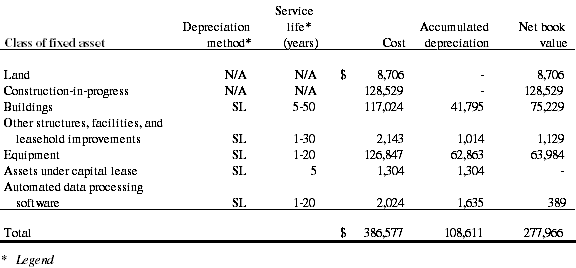
Alarm over AI has been growing, with leaders from various sectors voicing concerns about both the increasing power of AI and its role in society. Twenty eight nations at the summit – including the UK, US, the European Union and China – signed a statement about the future of AI. Artificial intelligence is already altering the world and raising important questions for society, the economy, and governance. 6 min read – Microcontroller units (MCUs) and microprocessor units (MPUs) are two kinds of integrated circuits that, while similar in certain ways, are very different in many others. Unlike AI programming, traditional programming requires the programmer to write explicit instructions for the computer to follow in every possible scenario; the computer then executes the instructions to solve a problem or perform a task.
Advantages and Disadvantage of Artificial Intelligence
OCI’s unique cloud architecture enables Oracle to deploy dedicated cloud regions with hyperscale cloud services inside customer data centers and deploy more public cloud regions faster by starting with an optimal footprint and scaling as needed. This approach helps meet the needs of all countries and markets without compromising cloud capabilities, while also providing the consistent performance, SLAs, and global pricing for which OCI has become known. The upcoming cloud region in Madrid will help public and private sector organizations migrate all types of workloads to the cloud, modernize their applications, and innovate with data, analytics, and AI.
Share this news article on:

Artificial intelligence (AI) is quickly becoming an essential part of everyday life. If you’ve used a self-service kiosk to check in before a flight, typed into a search bar and been given suggested keywords, or even switched the cruise control on during a long road trip, you’ve benefited from AI. Even more so, businesses form 1099-int accrued interest are finding ways to optimize daily operations, stay connected with customers, and gain a competitive edge to accelerate growth through AI. The presence of AI is reshaping our world, and every day more job opportunities—from data scientists to information managers to software developers—are opening to new employees.
- AI’s predictive nature has led to many areas of law enforcement and criminal justice adopting its use, such as in the case of algorithmic risk assessments.
- Today, AI empowers organizations, governments and communities to build a high-performing ecosystem to serve the entire world.
- Unlike human workers, AI systems can operate continuously without the need for breaks or rest.
- But, while the results may be almost instantaneous, they can often lack the creativity and polish of those created by skilled professionals.
- As long as the power is turned on, algorithms can run 24 hours a day, 7 days a week without needing a break.
What are the benefits of AI?

Issues such as data privacy, surveillance, and the potential for biased decision-making are critical concerns that need to be addressed. The automation of tasks through AI can lead to job displacement in certain sectors. While AI creates new job opportunities, it also renders some roles obsolete, leading to workforce displacement and economic disruption. Ultimately what society must aim for, Acemoglu said, is what he and Johnson term “The Productivity Bandwagon” in their book. That is the condition in which technological innovation is adapted to help workers, not replace them, spreading economic growth more widely. The Starr Forum is a public event series held by MIT’s Center for International Studies (CIS), and focused on leading issues of global interest.
Making sure that the development of artificial intelligence goes well is not just one of the most crucial questions of our time, but likely one of the most crucial questions in human history. This needs public resources – public funding, public attention, and public engagement. Similarly, a contingent of thought leaders have said they fear AI could enable laziness in humans.
As a result, the text, images, music, or videos produced by AI often lack the originality that defines the most engaging, beloved, and entertaining work. Some of the benefits AI may provide in the health care industry include the improved operational efficiency of health facilities, better patient experiences, and greater diagnostic accuracy. In addition to containing patient records that essentially track an individual’s health outcomes over time, health care facilities also contain large stores of diagnostic images, transactional payments, and demographic information. In effect, AI can have an oversized impact on how the health care industry operates and provides patient care. AI is capable of quickly analyzing these large data sets and helping organizations to better understand what they’re telling them.
Balancing the good and the challenges is key for a smart and responsible use of AI in the workplace. In this guide, we will look at the advantages and disadvantages of artificial intelligence, exploring its impact on both personal and professional spheres. The equivalent of 300 million full-time jobs could be lost to automation, according to an April 2023 report from Goldman Sachs Research. The authors also estimated “that roughly two-thirds of https://www.online-accounting.net/ U.S. occupations are exposed to some degree of automation by AI.” The story is complicated, though. Economists and researchers have said many jobs will be eliminated by AI, but they’ve also predicted that AI will shift some workers to higher-value tasks and generate new types of work. Existing and upcoming workers will need to prepare by learning new skills, including the ability to use AI to complement their human capabilities, experts said.
As AI continues to evolve, it’s essential to understand both its benefits and potential drawbacks. This article explores the advantages and disadvantages of artificial intelligence to provide a comprehensive view of this influential technology. Today’s AI technology has a range of use cases across various industries; businesses use AI to minimize human error, reduce high costs of operations, provide real-time data insights and improve the customer experience, among many other applications. As such, it represents a significant shift in the way we approach computing, creating systems that can improve workflows and enhance elements of everyday life. The benefits of AI include efficiency through task automation, data analysis for informed decisions, assistance in medical diagnosis, and the advancement of autonomous vehicles. The drawbacks of AI include job displacement, ethical concerns about bias and privacy, security risks from hacking, a lack of human-like creativity and empathy.
There is also no doubt that AI possesses immense potential which further helps to create a better place to live in. However, anything in excess is not good and nothing can be matched at par with the human brain. In addition, OCI’s sovereign AI capabilities provide customers with increased control over where they locate their data and computing infrastructure and how they manage https://www.business-accounting.net/enrolled-agent-information/ it. As a result, customers can achieve AI sovereignty by gaining the assurance that their use of AI is aligned with data sovereignty frameworks. Additionally, since gen AI can increase the accessibility of various types of expert software, the potential user base there could significantly expand (see sidebar, “How gen AI could expand the expert software user base”).

In an evolving job market, this can lead to unemployment and reskilling workers. AI fosters innovation by enabling the development of new technologies and applications. From self-driving cars to advanced robotics, AI-driven innovations are transforming various industries and pushing the boundaries of what is possible. Unlike human workers, AI systems can operate continuously without the need for breaks or rest. The 24/7 availability leads to improved customer satisfaction and uninterrupted operations. Artificial Intelligence has various advantages and disadvantages that impact different aspects of society, technology, and the economy.
All visualizations, data, and code produced by Our World in Data are completely open access under the Creative Commons BY license. You have the permission to use, distribute, and reproduce these in any medium, provided the source and authors are credited. Human intelligence is also a bad metaphor for machine intelligence in other ways. The way we think is often very different from machines, and as a consequence the output of thinking machines can be very alien to us. An example of AI’s ability to improve safety is General Motors’ Super Cruise feature that ensures a driver pays attention to the road. More specifically, they called on “all AI labs to immediately pause for at least 6 months the training of AI systems more powerful than GPT-4.”
I hope that more people dedicate their individual careers to this cause, but it needs more than individual efforts. A technology that is transforming our society needs to be a central interest of all of us. As a society we have to think more about the societal impact of AI, become knowledgeable about the technology, and understand what is at stake.
In hazardous environments, AI can perform dangerous tasks, reducing the risk to human workers. This is particularly beneficial in industries such as mining, construction, and space exploration. Investors can take the AI a step further by implementing Portfolio Protection. This uses a different machine learning algorithm to analyze the sensitivity of the portfolio to various forms of risk, such as oil risk, interest rate risk and overall market risk. It then automatically implements sophisticated hedging strategies which aim to reduce the downside risk of the portfolio. AI can then pick up patterns in the data and offer predictions for what might happen in the future.
For example, Allen Institute for Artificial Intelligence CEO Oren Etzioni argues there should be rules for regulating these systems. System cannot retain or disclose confidential information without explicit approval from the source of that information.”67 His rationale is that these tools store so much data that people have to be cognizant of the privacy risks posed by AI. There could be public-private data partnerships that combine government and business data sets to improve system performance.